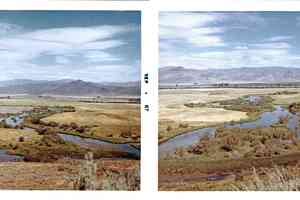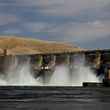Officials from California, Oregon and the federal government have reached an agreement that would set the nation's largest ever dam removal project, on California's Klamath River, into action. The agreement — which leverages a dam delicensing process at the Federal Energy Regulatory Commission — would circumvent a Republican congressional blockade and set into motion a project that would see the Klamath's dams removed by 2020.
The plan is being lauded by Trout Unlimited, which helped negotiate the deal as one that would open up over 500 miles of wild steelhead habitat and as much as 420 miles of wild salmon habitat.
"This agreement is a major win for one of America’s greatest coldwater fisheries," said Chris Wood, Trout Unlimited president and CEO. “This river restoration will be the largest in U.S. history. TU is proud to have played an important role in the long effort to bring about this restoration and to resolve one of our country’s most intractable water challenges.”
Dam removal on the Klamath — which flows through southern Oregon and northern California — has been a hotly contested topic, marked by clashes between conservation groups, farmers, tribes and commercial fishermen.
But PacifiCorp, the company that owns and operates the Klamath's four dams, has agreed to remove them and foot the bill for $200 million of the estimated $450 million that the project is expected to cost. California's Governor, Jerry Brown, has proposed setting aside state funds for the remaining $250 million in costs.

PacifiCorp's decision may be best viewed as prudent financial planning, given that the costs of maintaining the dams would likely exceed the costs of removing them. In order to relicense the dams, PacifiCorp would have to modernize the dams to meet Clean Water Act requirements, a process that is estimated to cost upwards of $400 million.
Governor Jerry Brown (CA), Governor Kate Brown (OR), U.S. Secretary of the Interior and former REI CEO Sally Jewell, PacifiCorp officials and a host of others are expected to host a news conference today at the mouth of the Klamath River where they will announce the historic dam removal agreement.
































Comments